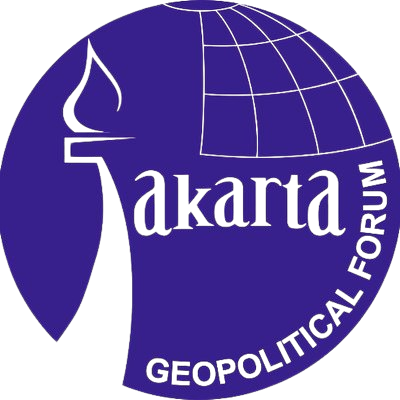Keynote Address: MARITIME GOVERNANCE IN THE INDO-PACIFIC: STRATEGIC IMPERATIVES, REGIONAL TENSIONS, AND THE PATH TO RESILIENCE
DOI:
https://doi.org/10.55960/jgf.v8i1.265Keywords:
ASEAN cooperation, Geopolitical tensions, Indo-Pacific maritime governance, Regional security resilienceAbstract
The maritime domain has emerged as a central arena of strategic rivalry among major powers (1). While this competition fosters innovation and stimulates economic activity, the domain also generates policy fragmentation and heightens geopolitical tensions (2). The fragmentation of regional policies, especially in maritime governance, stems from conflicting interests and unresolved rivalries among global powers. As industrial development becomes more interlinked with maritime infrastructure, the stakes for regional stability continue to grow (3).
The Indo-Pacific region holds immense strategic importance. The Region houses over half of the world’s population, contributes 60% to global GDP, accounts for 46% of international trade, and drives two-thirds of global economic growth (4). Critical maritime routes, for example the Strait of Malacca, the South China Sea, and the Indian Ocean, facilitate approximately 60% of global trade and serve as key energy corridors for oil and gas transit. Regional organisations, for example ASEAN and APEC, contribute in maintaining geopolitical balance and enhancing economic cooperation (4). The Regional Comprehensive Economic Partnership (RCEP), the world’s largest free trade agreement, further underscores the region’s significance (5).
Despite these strengths, the Indo-Pacific remains highly vulnerable to geopolitical conflict (6). The South China Sea continues to serve as a flashpoint for territorial disputes (7). Tensions persist along the India-China border in the Himalayas and on the Korean Peninsula due to the North Korean nuclear program. These ongoing tensions complicate diplomatic relations and increase the risk of regional instability. Therefore, maritime governance must evolve beyond traditional security frameworks to mitigate complex and hybrid threats, for example maritime terrorism, irregular warfare at sea, human trafficking, illegal immigration, maritime smuggling, and escalating disputes over fisheries and environmental degradation (8).
Technological advancements in maritime domains offer both opportunities and challenges. Innovations in navigation, surveillance, and enforcement can improve safety and resource management (9). However, dual-use technologies also introduce risks, particularly when state and non-state actors manipulate them to serve disruptive purposes (10). These developments demand a multidimensional governance framework capable of mitigating technological, legal, environmental, and security concerns in an integrated manner (1).
Building trust and promoting collaboration remain essential to regional resilience (11). Effective maritime governance requires mechanisms that facilitate dialogue, reduce misperception, and prevent conflict escalation (12). ASEAN and other regional bodies must strengthen their contribution in maritime surveillance, intelligence sharing, and coordinated law enforcement. Establishing joint mechanisms would foster a sense of shared responsibility and enhance the capacity to manage maritime challenges collectively. The maritime domain, as a global common, requires stewardship that transcends national interests to ensure sustainable development and collective security (11).
Indonesia’s maritime vision, Wawasan Nusantara, encapsulates the nation’s historical and geographic identity as an archipelago (13). This doctrine advocates for national resilience and maritime strength as pillars of sovereignty and prosperity. Proposals for a regional governance mechanism rooted in this vision emphasize the need for swift, coordinated responses to geopolitical crises, natural disasters, and maritime accidents. The mechanism should accommodate the diverse capacities of Indo-Pacific states while delivering concrete security and humanitarian outcomes (1).
The Jakarta Geopolitical Forum underscored the urgency of shaping a cooperative maritime order (1). Despite the significant challenges facing the Indo-Pacific, the potential for peace and stability remains attainable through strategic dialogue, shared frameworks, and institutional innovation. Regional actors must seize the momentum to reaffirm their commitment to a stable, secure, and resilient maritime environment. By fostering collective action and inclusive governance, the Indo-Pacific can chart a path toward a more integrated and peaceful future
Downloads
References
1. Subianto P. Jakarta Geopolitical Forum VIII/2024. 2024 [cited 2025 Aug 3]. Keynote Address on Jakarta Geopolitical Forum VIII/2024. Available from: https://www.youtube.com/watch?v=cKp5tBF8usc
2. Tsailas D. Risks And Threats In The 21st Century Maritime Security. Secur Sci J. 2025 May 7;6:106–44.
3. Eriksson B, Boonstra WJ. Toward contested seas? A review of geopolitical trends at sea in the 21st century. Anthr Rev. 2025 May 11;20530196251334760.
4. Hoang Long T, Xuan Hiep T, Tuan Binh N. Maritime Security in The Indo-Pacific Region: A View from The Geostrategic Position of The Malacca Strait. AUSTRAL Brazilian J Strateg Int Relations. 2022 Nov 11;11(21 SE-Articles).
5. Sangwan G. RCEP and Indo-Pacific Region: Implications for India’s Act East Policy. China WTO Rev. 2023;9(2):339–53.
6. Arya A. Maritime Security Challenges in The Indo-Pacific Region. Int J Polit Sci Gov. 2022;4(2):149–54.
7. Edwards S. Fragmentation, Complexity and Cooperation. Contemp Southeast Asia. 2022 Aug 4;44(1):87–121.
8. Pandey S, Stuart D. Theoretical and Conceptual Framework of Non-Traditional Maritime Security. Interantional J Sci Res Eng Manag. 2024 Dec 10;08(12):1–7.
9. Okafor-Yarwood I, Eastwood O, Chikowore N, de Oliveira Paes L. Technology and maritime security in Africa: Opportunities and challenges in Gulf of Guinea. Mar Policy [Internet]. 2024;160:105976. Available from: https://www.sciencedirect.com/science/article/pii/S0308597X23005092
10. Islam MS. Maritime Security in a Technological Era: Addressing Challenges in Balancing Technology and Ethics. Mersin Univ J Marit Fac. 2024;6(1):1–16.
11. Trilia D, Mamahit DA, Wiranto S, Widodo P, Saragih HJR, Suwarno P. Regional Collaboration Strategy to Overcome Geopolitical Threats in the ASEAN Maritime Region. Formosa J Appl Sci. 2024 Aug 28;3(8 SE-Articles):3479–90.
12. Guricci MFA, Seniwati S. Strategi Keamanan Maritim di Asia Tenggara: Kerjasama Diplomasi maritim di ASEAN. Konsensus J Ilmu Pertahanan, Huk dan Ilmu Komun. 2024 Dec 3;1(6 SE-Articles):130–9.
13. Nadia ZNS, Firdaus MI, Saputri FJ, Anaswa KF, Umam RF. The The Role of the Archipelago Insight in Strengthening Indonesia’s Territorial Sovereignty in the Era of Globalization. Cive J Penelit Pendidik Pancasila dan Kewarganegaraan. 2025 Mar 28;5(3 SE-Articles):128–35.
Downloads
Published
Conference Proceedings Volume
Section
License
Copyright (c) 2024 Author's

This work is licensed under a Creative Commons Attribution-ShareAlike 4.0 International License.











